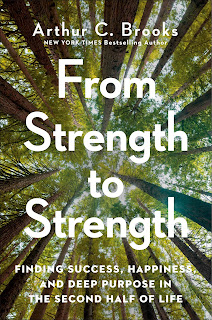Energy: The Fuel of Life and Progress
Energy is the lifeblood of our world, powering everything from the smallest cell to the largest city. It's a concept that touches every aspect of our lives, yet its complexity often leaves us scratching our heads. Let's embark on a journey to understand energy in its many forms and how we harness it for survival and progress.
At its core, energy is simply the ability to do work. It's the invisible force that makes things happen, whether it's the warmth of the sun nurturing a seedling or the electricity illuminating your home. Energy comes in many guises - kinetic, potential, thermal, electrical, and more - each playing a crucial role in the dance of life.
Our bodies are marvels of energy conversion. When we munch on a crisp apple, we're not just satisfying our hunger - we're ingesting energy that plants have painstakingly captured from sunlight. Through the miracle of cellular respiration, our bodies break down this stored energy, converting it into ATP, the universal energy currency of life. This ATP then powers everything from our heartbeat to our ability to ponder the mysteries of the universe.
But our energy needs extend far beyond our biological processes. We've become masters at harnessing energy from the world around us. Solar panels capture the sun's rays, wind turbines harness the breeze, and hydroelectric dams tap into the power of flowing water. These innovations have transformed our lives, lighting up our cities and propelling us into the digital age.
Yet, with great power comes great responsibility. As we've expanded our energy use, we've also grappled with the consequences. The byproducts of our energy consumption - from greenhouse gases to nuclear waste - pose significant challenges. This brings us to a crucial question: Is the byproduct from a technology worth the product? If not, is there a better way to achieve the same or a similar result?
These are not easy questions to answer, but they are vital ones. They challenge us to think critically about our energy choices and their long-term impacts. They push us to innovate, to seek cleaner, more sustainable energy sources that can power our future without compromising our planet.
As we move forward, it's clear that our relationship with energy will continue to evolve. We have the power to shape this relationship, to make choices that balance our needs with the health of our environment. By understanding energy in all its forms and considering the full cycle of its use, we can make informed decisions that benefit both ourselves and the world around us.
Energy is not just a scientific concept - it's the key to our survival and progress. By respecting its power and using it wisely, we can build a brighter, more sustainable future for generations to come. So the next time you flip a light switch or bite into an apple, take a moment to appreciate the incredible journey of energy that makes it all possible. After all, in the grand tapestry of life, we're all weavers of energy, shaping the world with every choice we make.
Thoughts With Mr. Simplicity is brought to you by The Simplicity Lifestyle.
If you’re interested in The Simplicity Lifestyle:
The Simplicity Lifestyle Welcome Message
The Simplicity Lifestyle Introductory Class
Brought to you by The Simplicity Lifestyle
Citations
"Forms of energy." U.S. Energy Information Administration, 16 Aug. 2023, www.eia.gov/energyexplained/what-is-energy/forms-of-energy.php.
"Energy, Heat, and Temperature." Chemistry LibreTexts, chem.libretexts.org/Bookshelves/General_Chemistry/Chem1_%28Lower%29/02:_Essential_Background/2.02:_Energy_Heat_and_Temperature.
"Types of Energy." Solar Schools, solarschools.net/knowledge-bank/energy/types.
"Energy and Heat." The Physical Environment, www.thephysicalenvironment.com/Book/energy/energy_and_heat.html.
"Heat VS. Energy." CHEMISTRY COMMUNITY, lavelle.chem.ucla.edu/forum/viewtopic.php?t=41221.
"Kinetic energy." Merriam-Webster, www.merriam-webster.com/dictionary/kinetic%20energy.
"What is kinetic energy?" TechTarget, www.techtarget.com/whatis/definition/kinetic-energy.
"Kinetic energy." Britannica, www.britannica.com/science/kinetic-energy.
"Kinetic Energy." The Physics Classroom, www.physicsclassroom.com/class/energy/u5l1c.cfm.
"What Is Kinetic Energy? Definition, Formula, and Facts." Energy Savings, energysavings.com/blog/advice/what-is-kinetic-energy-definition/.
"What is the relationship between the kinetic energy and potential energy?" BYJU'S, byjus.com/question-answer/what-is-the-relationship-between-the-kinetic-energy-and-potential-energy/.
"Potential and Kinetic Energy Explained." Amigo Energy, amigoenergy.com/blog/potential-and-kinetic-energy-explained/.
"The relationship between potential energy and kinetic energy." Physics Forums, www.physicsforums.com/threads/the-relationship-between-potential-energy-and-kinetic-energy.480039/.
"The Relationship Between KE and PE." ScienceFlip, www.scienceflip.com.au/subjects/physics/dynamics/learn15/.
"POTENTIAL ENERGY." Dictionary.com, www.dictionary.com/browse/potential-energy.
"What is Potential Energy?" BYJU'S, byjus.com/physics/potential-energy/.
"Potential energy." Britannica, www.britannica.com/science/potential-energy.
"Potential Energy." Ducksters, www.ducksters.com/science/physics/potential_energy.php.
"Electrical potential." Merriam-Webster Medical, www.merriam-webster.com/medical/electrical%20potential.
"Electric Potential (Energy)." SparkFun Learn, learn.sparkfun.com/tutorials/what-is-electricity/electric-potential-energy.
"Electric potential energy." Wikipedia, en.wikipedia.org/wiki/Electric_potential_energy.
"Electric potential." Khan Academy, www.khanacademy.org/test-prep/mcat/physical-processes/electrostatics-1/a/electric-potential.
"Difference between the Gravitational Potential Energy and Gravitational Potential." GeeksforGeeks, www.geeksforgeeks.org/difference-between-the-gravitational-potential-energy-and-gravitational-potential/.
"Field Potential." Isaac Physics, isaacphysics.org/concepts/cp_potential.
"Electric Potential." Texas Gateway, www.texasgateway.org/resource/184-electric-potential.
"Flow of Energy." Biology LibreTexts, bio.libretexts.org/Bookshelves/Ecology/AP_Environmental_Science/01:_Chapters/1.01:_Flow_of_Energy.
"What Are the Differences Between Potential Energy, Kinetic Energy and Thermal Energy?" Sciencing, sciencing.com/differences-kinetic-energy-thermal-energy-8704942.html.
"Energy Transfers and Transformations." National Geographic, education.nationalgeographic.org/resource/energy-transfers-and-transformations/.
"Thermal Energy." Physics LibreTexts, phys.libretexts.org/Courses/University_of_California_Davis/UCD:_Physics_9HA__Classical_Mechanics/3:_Work_and_Energy/3.5:_Thermal_Energy.
"Kinetic Energy Into Thermal Energy." Arbor Scientific, www.arborsci.com/blogs/cool/kinetic-energy-into-thermal-energy.
"How are thermal energy and kinetic energy connected?" CK-12, www.ck12.org/flexi/physical-science/thermal-energy/how-are-thermal-energy-and-kinetic-energy-connected/.
"Biological Energy Conversion." Engineering LibreTexts, eng.libretexts.org/Bookshelves/Electrical_Engineering/Electro-Optics/Direct_Energy_%28Mitofsky%29/10:_Miscellaneous_Energy_Conversion_Devices/10.03:_Biological_Energy_Conversion.
"Galvanic cell converts chemical energy into." BYJU'S, byjus.com/question-answer/galvanic-cell-converts-chemical-energy-intomechanical-energy-electrical-energy-potential-energy-kinetic-energy-1/.
"SimScience - Cells and energy." Cornell University, sethna.lassp.cornell.edu/SimScience/membranes/advanced/essay/cells_and_energy.html.
"Energy and Metabolism." Concepts of Biology, opentextbc.ca/biology/chapter/4-1-energy-and-metabolism/.
"When does entropy increase and when does it decrease?" Socratic, socratic.org/questions/when-does-entropy-increase-and-when-does-it-decrease.
"Entropy Rules." Chemistry LibreTexts, chem.libretexts.org/Bookshelves/General_Chemistry/Chem1_%28Lower%29/15:_Thermodynamics_of_Chemical_Equilibria/15.02:_Entropy_Rules.
"Entropy as an arrow of time." Wikipedia, en.wikipedia.org/wiki/Entropy_as_an_arrow_of_time.
"The Second Law and Entropy Misconceptions Demystified." PMC, www.ncbi.nlm.nih.gov/pmc/articles/PMC7517180/.
"Energy Transfer." University of Arizona, www.atmo.arizona.edu/students/courselinks/fall14/atmo336/lectures/sec1/energy_trans.html.
"Science Finally Confirms That People Absorb Energy From Others." LinkedIn, www.linkedin.com/pulse/science-finally-confirms-people-absorb-energy-from-others-weill.
"Human Spirit - Chakras - Part 4 - Energy Transfers." Cosmic Core, www.cosmic-core.org/free/article-203-human-spirit-chakras-part-4-energy-transfers/.
"Science Confirms We Absorb Energy From Each Other." Fearless Soul, iamfearlesssoul.com/absorb-energy/.




Comments
Post a Comment